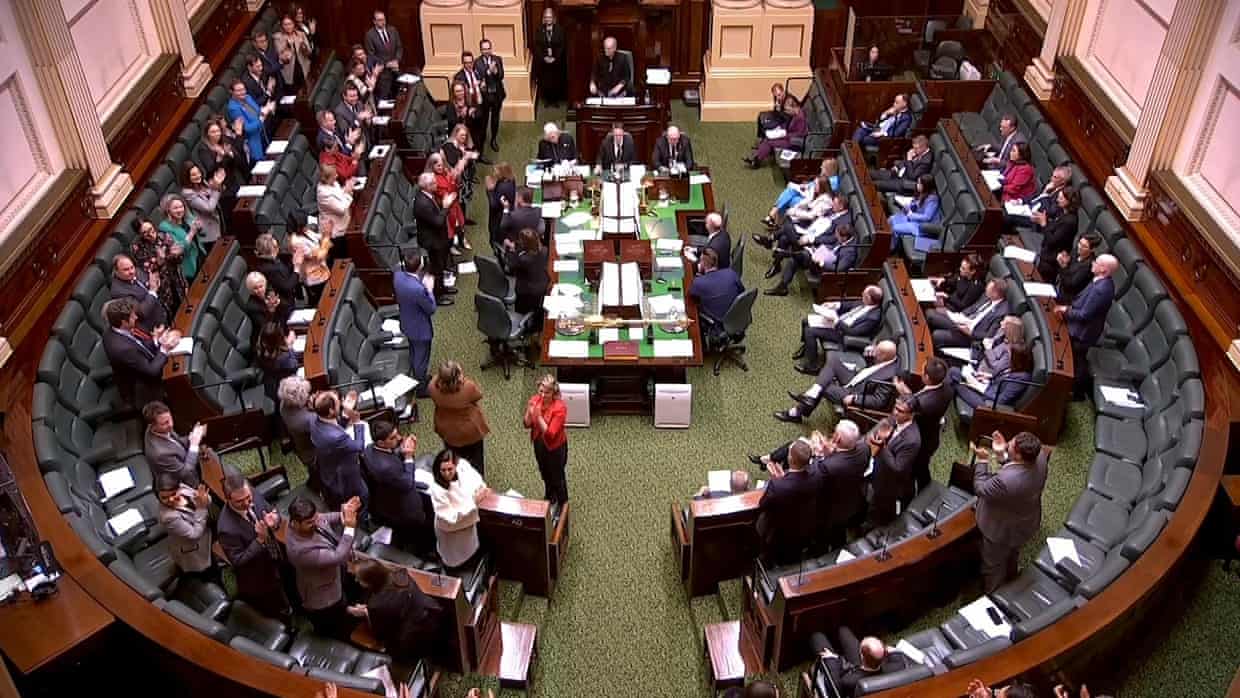Politics
Victoria Takes Historic Step with First Treaty Legislation

Jacinta Allan, the Premier of Victoria, has officially tabled the first formal treaty between the Australian government and traditional owners in the state parliament. This significant milestone, reached after nearly ten years of negotiation and consultation, represents a crucial step towards reconciliation with Aboriginal communities in Victoria.
The treaty aims to implement a range of initiatives designed to acknowledge and integrate Aboriginal culture into the state’s educational framework. Key measures include the incorporation of Aboriginal truth-telling into the school curriculum and an increased use of traditional names across various public platforms.
Significance of the Treaty
This landmark legislation is not just a symbolic gesture; it is expected to have substantial practical implications for how Aboriginal history and culture are taught in Victorian schools. The push for truth-telling reflects a broader movement to confront historical injustices faced by Indigenous Australians.
According to Jacinta Allan, the treaty is a foundational step towards building a more inclusive society. “This treaty is about acknowledging the past and taking steps towards a better future for all Victorians,” she stated during the parliamentary session. The legislation aims to foster understanding and respect for Aboriginal cultures among all citizens.
Next Steps and Public Engagement
Following the tabling of the treaty, consultations will continue to ensure that the voices of Aboriginal communities are central to its implementation. The government plans to engage with various stakeholders, including educators, community leaders, and the general public, to develop a comprehensive strategy for the treaty’s rollout.
The introduction of traditional names and the incorporation of truth-telling in schools are just the beginning. The treaty will also establish frameworks for ongoing dialogue and collaboration between the Victorian government and Aboriginal communities, aiming to address issues such as land rights and cultural preservation.
As this initiative unfolds, it will be closely monitored by both supporters and critics, with many viewing it as a potential model for similar agreements across Australia. The success of the treaty will depend on genuine commitment from all parties involved, as well as effective mechanisms for accountability and progress.
This momentous event in March 2024 marks a turning point in Victoria’s approach to Indigenous relations, setting a precedent that could influence national policies regarding Aboriginal rights and recognition.
-

 Lifestyle3 months ago
Lifestyle3 months agoLibraries Challenge Rising E-Book Costs Amid Growing Demand
-

 Sports3 months ago
Sports3 months agoTyreek Hill Responds to Tua Tagovailoa’s Comments on Team Dynamics
-

 Sports3 months ago
Sports3 months agoLiverpool Secures Agreement to Sign Young Striker Will Wright
-

 Lifestyle3 months ago
Lifestyle3 months agoSave Your Split Tomatoes: Expert Tips for Gardeners
-

 Lifestyle3 months ago
Lifestyle3 months agoPrincess Beatrice’s Daughter Athena Joins Siblings at London Parade
-

 World3 months ago
World3 months agoWinter Storms Lash New South Wales with Snow, Flood Risks
-

 Science4 months ago
Science4 months agoTrump Administration Moves to Repeal Key Climate Regulation
-

 Science2 months ago
Science2 months agoSan Francisco Hosts Unique Contest to Identify “Performative Males”
-

 Business3 months ago
Business3 months agoSoFi Technologies Shares Slip 2% Following Insider Stock Sale
-

 Science4 months ago
Science4 months agoNew Tool Reveals Link Between Horse Coat Condition and Parasites
-

 Sports3 months ago
Sports3 months agoElon Musk Sculpture Travels From Utah to Yosemite National Park
-

 Science4 months ago
Science4 months agoNew Study Confirms Humans Transported Stonehenge Bluestones









